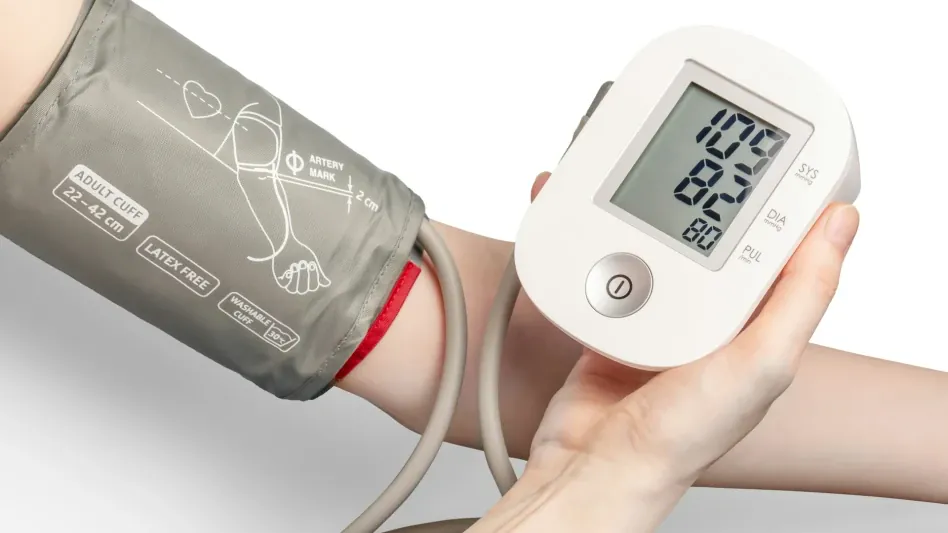Medical devices are undoubtedly crucial in healthcare, and how they are marketed plays a significant role in consumer choice. A pivotal case in Germany is set to determine if medical devices can be advertised with the promise of PAYBACK points under the German Drug Advertising Act (HWG). This case will have far-reaching implications for healthcare marketing strategies, particularly those involving customer loyalty programs.
Exploring the Legal Framework
Understanding the HWG Restrictions
Germany’s Drug Advertising Act (HWG) outlines strict rules against promotional giveaways in healthcare advertising. Specifically, Section 7 HWG prohibits such promotions to prevent undue influence on consumer decision-making. The law allows only negligible valued gifts or precise monetary benefits as exceptions. This specific legal framework is designed to ensure that consumers’ health-related purchasing decisions are made based on medical necessity and quality rather than the allure of non-health-related incentives.
The HWG aims to protect consumers from making potentially risky health decisions based on attractive promotional offers. The overarching goal is to keep the healthcare market transparent and free from undue influences that might compromise the integrity of health services. The regulation’s preventive nature emphasizes the significance of impartiality in healthcare marketing, underscoring that promotional items must be controlled rigorously to uphold ethical standards and safeguard consumer interests.
Promotional Gifts and Exceptions
The law aims to mitigate the risk of consumers being swayed by promotional gifts, setting a stipulation that allows only minimally valued items. These exceptions are critically evaluated to maintain ethical standards in the advertising of medical products. Under HWG’s provisions, the negligible value criterion ensures that any promotional giveaways do not exert substantial influence on consumer decisions, while explicitly regulating what may be deemed permissible.
The promotional exceptions typically cover items of insignificant monetary value that do not detract from the primary health-related decision-making process. Such regulatory nuances foster an environment where health product marketing remains focused on the intrinsic value and necessity of the medical devices themselves, rather than supplementary incentives. This legal safeguard aims to balance the commercial interests of medical device companies with the overarching imperative to protect public health from being swayed by external marketing tactics.
The Case in Focus
Plaintiff’s Standpoint
The German Center for the Protection Against Unfair Competition believes that offering PAYBACK points for purchasing medical devices violates Section 7 of the HWG. They argue that such practices are prohibited promotional gifts, potentially influencing consumer buying decisions unethically. From the plaintiff’s perspective, PAYBACK points do not align with the narrowly defined exceptions permitted under the HWG, given their potential to significantly influence consumer behavior through perceived monetary value.
The plaintiff asserts that even seemingly innocuous promotional strategies can have profound effects on purchasing patterns, particularly in sensitive markets such as healthcare. They maintain that the promise of PAYBACK points introduces an unacceptable risk of undue influence, diverting consumer attention from the actual medical benefits and necessity of the devices. This position underscores the need for stringent regulatory oversight to ensure that marketing practices for medical products adhere strictly to both the letter and the spirit of HWG.
Defendant’s Argument
The retailer of hearing aids defends its collaboration with PAYBACK GmbH, presenting the program as corporate advertising not falling under HWG’s product-specific advertising regulations. They emphasize that PAYBACK points represent permissible cash discounts, posing no health risk. From the retailer’s standpoint, the promotional offer is a standard business practice aimed at boosting customer loyalty without directly referencing specific medical products.
Defending their strategy, the retailer argues that the integration of PAYBACK points into their marketing does not coerce consumers into making health decisions but merely offers additional value. They contend that such customer loyalty schemes are prevalent across various sectors and should not be singled out within the healthcare industry provided they adhere to broader commercial norms. The retailer further posits that the financial incentives offered are negligible in value, aligning with allowable promotional activities under HWG, thus challenging the interpretation that PAYBACK points exceed permissible influence thresholds.
Judicial Journey and Interpretations
Initial Court Ruling
Initially, the Regional Court of Hamburg ruled in favor of the retailer, treating the PAYBACK points as legitimate corporate advertising for customer loyalty programs. It was determined that the program did not directly advertise a specific product and thus did not contravene the HWG. The court considered the broader context of advertising, suggesting that the promotional strategy functioned more as a general business incentive than a specific commercial enticement connected to individual medical devices.
The Regional Court’s decision emphasized the distinction between product-specific advertising and broader corporate promotion. In ruling for the retailer, the court underscored that marketing programs like PAYBACK points operate within standard commercial practices, which are not strictly bound by the stringent promotional restrictions of the HWG. This initial interpretation demarcated the boundaries of advertising within the purview of healthcare regulations, suggesting that such loyalty initiatives might be permissible if they fall under general business incentives.
Appellate Court’s Contention
Upon appeal, however, the Higher Regional Court (OLG) partially reversed the decision, stating the promotions were product-related. The court ruled that PAYBACK points, viewed as free from the consumer’s perspective, indeed qualified as promotional gifts under HWG. This appellate ruling introduced a more critical scrutiny of the promotional strategy, characterizing it as a specific incentive tied directly to the purchase of medical devices, thus subject to regulatory constraints.
The OLG’s ruling highlighted the potential for PAYBACK points to exert undue influence on consumer choices within the healthcare market. Drawing upon the legal mandate to prevent promotional drive from overshadowing health-related decisions, the court suggested tighter interpretations of permissible marketing strategies. The judgment reinforced the implicit risks associated with promotional gifts, even those of seemingly nominal value, and thereby mandated stricter adherence to the HWG’s provisions.
Evaluating Risks and Value Limits
Abstract Risk of Influence
The court recognized the potential for even an abstract risk of consumer influence through PAYBACK points, justifying regulatory oversight. Advertising that even remotely sways consumer choice needs to be tightly regulated to maintain fairness and ethics in healthcare marketing.
This perspective stresses the importance of guarding against any marketing mechanism that could potentially compromise medical impartiality, especially within sensitive markets like healthcare. The OLG’s view aligns with the broader regulatory ethos under HWG, where the emphasis lies heavily on preserving the sanctity of health-related consumer decisions. Even promotional aspects deemed insignificant can be substantial under certain circumstances, thus warranting meticulous regulatory intervention.
The Value Limit Debate
The OLG set a value limit, stating that PAYBACK points granted should not exceed 5.00 EUR for any medical device purchase. This threshold aims to ensure that promotional activities do not exert undue influence on consumer decisions while allowing minimal strategic marketing flexibility. The implementation of such value limits provides a clear regulatory framework within which healthcare marketers must operate, ensuring compliance with ethical standards.
Setting a value limit forms a balancing act between facilitating innovative marketing approaches and safeguarding consumer interests. By capping the value of promotional gifts, the OLG underscores the importance of minimizing any undue influence while recognizing the commercial need for competitive advertising. This legal nuance underpins the broader framework aimed at maintaining equitable practices within healthcare marketing, harmonizing business interests with the protection of consumers’ health-related decision-making processes.
Implications of the BGH Verdict
Awaiting the Final Decision
Both parties have appealed the mixed ruling, and the awaited BGH verdict will have significant implications. It is expected to set a clear precedent on how medical devices can be marketed with customer loyalty incentives under German law. The upcoming ruling will not only shape the regulatory landscape but also guide future marketing practices, ensuring compliance with both the letter and spirit of the HWG. It is anticipated that the BGH’s definitive stance will provide much-needed clarity on permissible promotional practices within the healthcare sector.
The BGH’s decision will be pivotal in determining the boundaries between innovative marketing strategies and regulatory compliance in the healthcare industry. The case has underscored the intricate balance between commercial incentives and ethical considerations, prompting a thorough legal examination.
Shaping Future Marketing Practices
Medical devices are undeniably essential in the healthcare sector, significantly influencing patient outcomes and overall public health. The case in Germany will determine if medical devices can be promoted through the incentive of earning PAYBACK points, as outlined under the German Drug Advertising Act (HWG). This ruling will play a crucial role in shaping future marketing strategies within the healthcare industry, specifically those strategies that involve customer loyalty programs. If the court permits the use of such incentives, it could revolutionize how medical devices are marketed, not just in Germany, but potentially influence global practices as well. On the flip side, a decision against this could mean stricter regulations and a more traditional marketing approach, ensuring that the primary focus remains on the medical benefits rather than promotional incentives.









